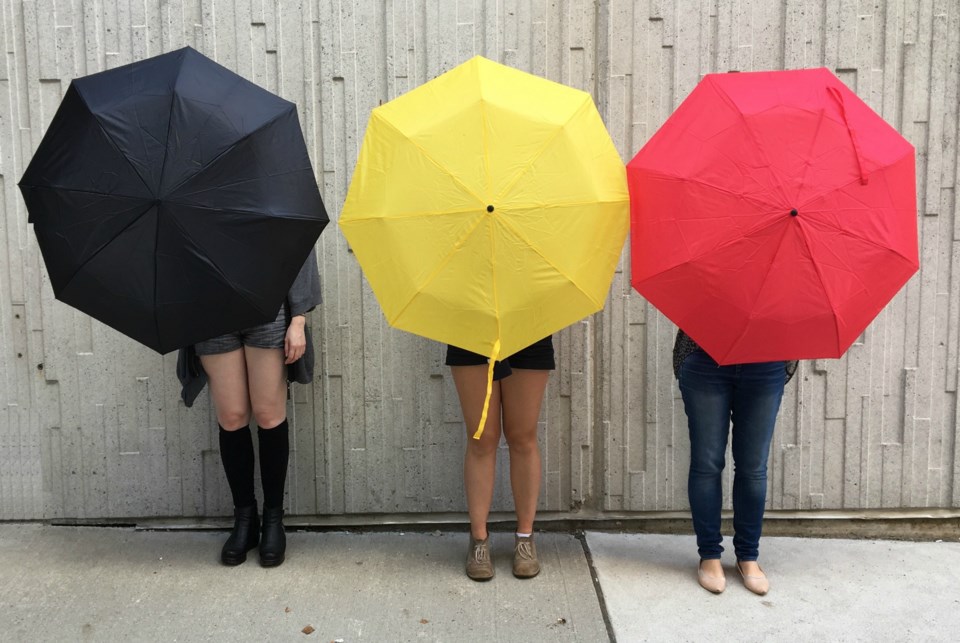Guelph residents are being invited to actively participate in a unique and highly visible educational initiative recognizing the 1,181 Indigenous women listed as murdered or reported missing by the RCMP since 1980.
The centrepiece for Phase I of the initiative, called 'In Unity: Educating on MMIWG,' is a human medicine wheel that will involve nearly 600 volunteers.
On Oct. 19, from noon to 2 p.m., the group will gather on the University of Guelph football field. There, they’ll be given four different coloured umbrellas (yellow, red, black or white) and assembled methodically in a circle, representing the medicine wheel.
An aerial photo will be taken from a crane above the group. On Feb. 14, 2018, it will be shown as part of Phase II of the initiative, an art installation, at a location to be announced later. The public is welcome to join both events.
“Participants will stand, in unity, to show that they have heard Indigenous calls to action,” says co-organizer Prof. Kim Anderson. “This visual will become a symbol of individual willingness to continue learning about national challenges to ending violence against Indigenous women.”
The gathering for the football field photo will also feature ceremonial drumming, an address from an Indigenous Elder, and information about the Moose Hide Campaign, a grassroots movement of Indigenous and non-Indigenous men who are standing up against violence towards women and children.
Further, the event is designed to promote discussion about Canada’s reconciliation with Indigenous peoples during this time of a National Inquiry into Missing and Murdered Indigenous Women and Girls.
Logistics for the “In Unity” initiative are being coordinated by co-organizer Prof. Brittany Luby, and Luby’s students in her Uses of History course (HIST*3450).
“The project works to stimulate critical thought about the scale of human loss in Indigenous communities by transforming government statistics into visuals that must be interpreted to be understood,” says Luby. “Teaching, activism, knowledge mobilization and service to the community all come together in this project.”
To become a medicine wheel participant, sign up through Eventbrite at In Unity: Educating on #MMIW.
